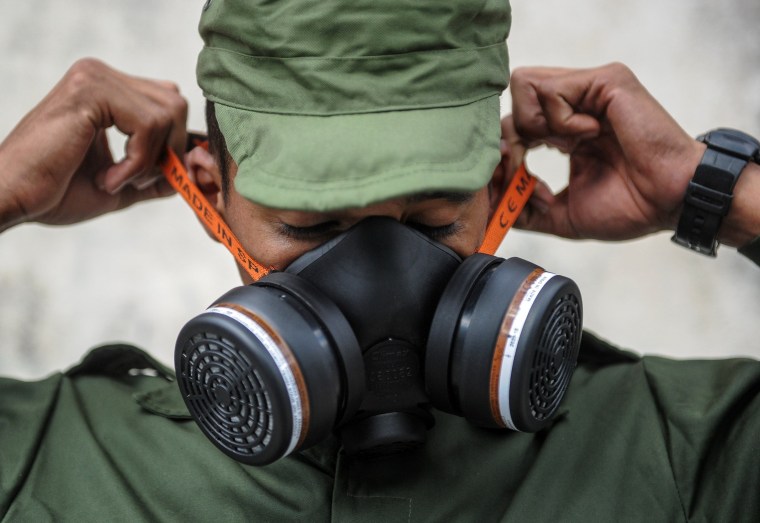The more doctors learn about the Zika virus, the more frightening it looks, and money’s urgently needed to fight it, two top health officials said Monday.
Doctors from the Centers for Disease Control and Prevention and the National Institutes of Health appeared before White House reporters to press their case for Congress to OK $1.9 billion in emergency funding to fight the virus.
“Most of what we've learned is not reassuring," said Dr. Anne Schuchat, CDC’s principal deputy director. "Everything we know about this virus seems to be scarier than we initially thought."

Just hours before they spoke, scientists released two more studies: one showing the virus seems to home in on developing brain cells and kill them, and one showing it may cause rare nerve damage that resembles multiple sclerosis.
Related: What is Zika?
“Everything we see is bad,” said Dr. Tony Fauci, head of the National Institute for Allergies and Infectious Diseases (NIAID). “Every week. Every month it tends to surprise us. There was no reason to think that it would be this bad.”
And Zika is infecting a lot of people.
“We are taking this seriously,” Schuchat said. Anywhere between 25 percent to 80 percent of the population could become infected as the virus moves across new countries, and the World Health Organization predicts Zika will hit every country in the Americas except for Chile and Canada, which don’t have the mosquitoes that spread it.
President Barack Obama’s asked Congress for $1.9 billion to help develop vaccines against Zika, search for better tests and drugs, to help people defeat the mosquitoes that spread it, and to study and support babies born with defects caused by infection during pregnancy.
“We still don’t have enough to do what we need to do.”
Zika can cause microcephaly, a devastating birth defect in which the brain doesn’t develop properly, and they’ve shown other types of brain damage too. And studies show babies can be affected at any stage of pregnancy –a Zika infection just weeks before birth can cause a miscarriage.
What’s not known, Schuchat says, is how many women who are pregnant and who get infected will go on to have babies with a birth defect. There are almost certainly going to be birth defects that don’t show up for years, experts say, and studies will be needed to find out what they are and how common they are.
And Zika is suspected of causing paralyzing conditions, including Guillain-Barre syndrome, in adults.
But Congress has said it doesn’t want to spend any new money on Zika until the federal government uses up excess funds from elsewhere. The administration says it’s scraped up nearly $600 million as a stopgap.
“I don’t have what I need right now,” Fauci said.
“What I’ve done is take money from other areas of non-Zika research to start,” Fauci said.
“One of the problems in the past decade or so is we really let our mosquito control efforts wither away."
NIH will have to take money away from programs to fight malaria, tuberculosis and influenza soon, Fauci said.
“When the president asked for $1.9 billion, we needed $1.9 billion,” Fauci said. “We still don’t have enough to do what we need to do.”
Money’s also needed formosquito control and surveillance, Schuchat said.
Zika is spread by the Aedes aegypti mosquito, which is common in the warmest states and territories but which can be found as far north as San Francisco, Kansas City and New York. Right now, there’s no way to forecast how bad they’ll be this summer, Schuchat said.
“One of the problems in the past decade or so is we really let our mosquito control efforts wither away,” she said.
“That is something we are working on and I think with more resources we could do a better job.”
